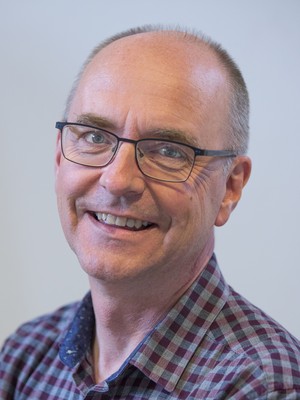Spring ’18 Joint CSC@USC/CommNetS-MHI Seminar Series
 |
Anders Rantzer,
Lund University
|
Abstract
Classical control theory does not scale well for large systems like traffic networks, power networks and chemical reaction networks. To change this situation, new approaches need to be developed, not only for analysis and synthesis of controllers, but also for modelling and verification. In this lecture we will present a class of networked control problems for which scalable distributed controllers can be proved to achieve the same performance as the best centralized ones. The control objective is stated in terms of frequency weighted H-infinity norms, which makes it possible to combine disturbance rejection at low frequencies with robustness to high frequency measurement noise and model errors. An optimal controller is given in the form of a multi-variable PI controller, which is distributed in the sense that control action along a given network edge is entirely determined by states at nodes connected by that edge. We will discuss some application examples, as well as connections to other aspects of scalability.
Biosketch
Anders Rantzer received a PhD in 1991 from KTH, Stockholm, Sweden. After postdoctoral positions at KTH and at IMA, University of Minnesota, he joined Lund University in 1993 and was appointed professor of Automatic Control in 1999. During the academic year of 2004-2005 he was visiting associate faculty member at Caltech and 2015-2016 he was Taylor Family Distinguished Visiting Professor at the University of Minnesota. Since 2008 he coordinates the Linnaeus center LCCC at Lund University.
Professor Rantzer is an editorial board member of Proceedings of the IEEE and several other publications. He is a winner of the SIAM Student Paper Competition, the IFAC Congress Young Author Price, and the award for best article in IEE Proceedings - Control Theory and Applications. He is a Fellow of IEEE, a member of the Royal Swedish Academy of Engineering Sciences, and former chairman of the Swedish Scientific Council for Natural and Engineering Sciences.
His research interests are in modeling, analysis and synthesis of control systems, with particular attention to uncertainty, optimization, scalability and adaptation.
